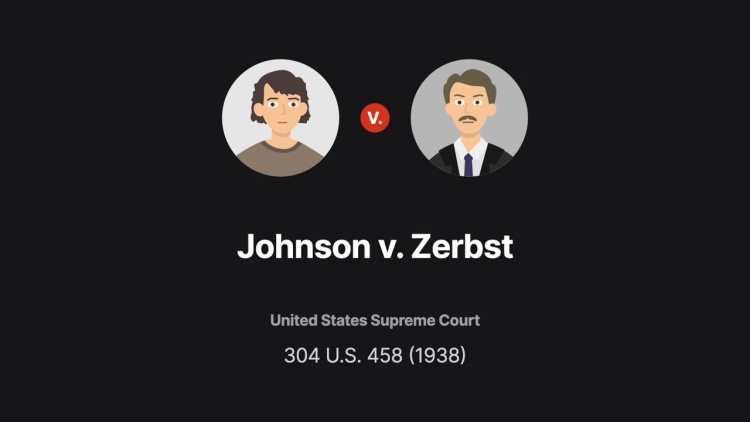Johnson v. Zerbst
United States Supreme Court
304 U.S. 458 (1938)

- Written by Rich Walter, JD
Facts
The federal government prosecuted Johnson (plaintiff) for counterfeiting. Trial in the United States District Court for the Eastern District of South Carolina commenced after Johnson told the judge he was willing to proceed without a lawyer. Johnson was convicted and sent to prison, where he was deprived of legal representation to help in filing an appeal; consequently, he missed the appeal deadline. Johnson then petitioned the district court to issue a writ of habeas corpus to Zerbst (defendant), the prison warden, on the grounds Johnson was tried without the assistance of counsel guaranteed him by the Sixth Amendment to the United States Constitution. The district court did not determine whether Johnson waived his right to counsel. The court dismissed Johnson's petition, ruling that Johnson's failure to file a timely appeal, whether from ignorance or negligence, was insufficient to give the court habeas corpus jurisdiction to reopen Johnson's case. Johnson appealed to the United States Court of Appeals for the Fifth Circuit, which affirmed the district court's ruling. The United States Supreme Court granted certiorari to hear Johnson's appeal.
Rule of Law
Issue
Holding and Reasoning (Black, J.)
Dissent (McReynolds, J.)
Dissent (Butler, J.)
What to do next…
Here's why 910,000 law students have relied on our case briefs:
- Written by law professors and practitioners, not other law students. 47,100 briefs, keyed to 997 casebooks. Top-notch customer support.
- The right amount of information, includes the facts, issues, rule of law, holding and reasoning, and any concurrences and dissents.
- Access in your classes, works on your mobile and tablet. Massive library of related video lessons and high quality multiple-choice questions.
- Easy to use, uniform format for every case brief. Written in plain English, not in legalese. Our briefs summarize and simplify; they don’t just repeat the court’s language.





